- Home
- Workshop | Galati
-
 Workshop | The Economic and Social Impact of Implementing
Workshop | The Economic and Social Impact of Implementing
Esgs for Climate-Neutral UniversitiesGALATI, ROMANIA FEBRUARY 15, 2024
Workshop Title:
The Economic and Social Impact of Implementing Esgs for Climate-Neutral Universities
Date:
February 15th, 2024 (GMT+2)
Organizer:
Danubius University from Galati
Keywords:
- ESG
- climate change
- green university
- sustainability
- voluntary reporting
- social responsibility
Workshop Chair:
Professor Dr. Habil. Florian Marcel Nuţă
Professor Dr. Habil. in Danubius University from Galaţi
Personal Bio:
Florian Marcel Nuţă is a Professor Dr. Habil. at Danubius University from Galaţi, with over 17 years of teaching and research experience. He is affiliated with Ştefan cel Mare University of Suceava, Doctoral School of Social and Human Sciences, for research and doctoral supervision. His scientific research is conducted in the following fields: Environmental Accounting, Climate Change Economics, Energy Economics, Urban Environmental Accounting, Carbon Accounting, Green Taxation, and Public Policy.
He is involved in numerous editorial initiatives as editor-in-chief, editor, member of the international scientific board, and reviewer for scientific journals and international conferences, conducting more than 500 peer-reviews during his academic career.
Dr. Nuţă worked as a reviewer for Renewable & Sustainable Energy Reviews, Energy Efficiency, Resources Policy, Sustainable Energy Technologies and Assessments, Economic Research, Journal of Entrepreneurship in Emerging Countries, Cogent Business and Management, and other peer-reviewed scientific journals.
Workshop Description:
Background:
Universities are at the forefront of climate change mitigation in terms of creating knowledge dedicated to understanding the critical risks for humankind. Besides this knowledge-creator role, higher education organizations are actively involved in actions oriented to tackle environmental and social issues related to their operations or offering policy guidance to others. Non-financial reporting has evolved dramatically in the last couple of decades, and it is now a part of the performance system as the interest of various stakeholders has increased accordingly. The presence of modern universities in the local communities has reshaped during the last decades from elitist education providers to active actors in social and civic matters, such as climate change mitigation and resilience. The sustainable development goals are not discussed anymore in opposition to the business environment and economic output producers. The social and civic society of which the universities are a part asked to take its share of responsibility and act not only as policy takers but also as policymakers and influencers for decisions influencing the society they belong to. Implementing ESG indicators in universities is relevant to evaluating such organizations' performance, and the characteristics need to be addressed separately.
Goal / Rationale:
The health crisis and the effects of climate change transformed the universities. These organizations need to explore development options beyond traditional operations actively. Technological transformations, rapid innovation, and digitalization, along with seeking solutions for climate change resilience, challenge the universities to reinvent themselves and become more socially active. The stress for both students and faculty was high due to various challenges that happened rapidly during the 2020s. Severe weather conditions, the COVID-19 pandemic, and global transformations were doubled by technological advancements and the rapid multiplication of knowledge and the channels for transmitting it. These questioned the university's existence itself and urged it to adapt to the new context. The active role in creating the premises for climate change mitigation and resilience involving the whole community is one of the answers to this vital question and will be debated accordingly.
Scope and Information for Participants:
The workshop's main goal is to generate an intense exchange of ideas and discuss topics
related to the role of universities in the context of climate change and the implementation
of ESGs.
The workshop participants are welcome to be involved in topics such as ESG, climate change,
green university, sustainability, voluntary reporting, social responsibility, and other
related subjects. The central point revolves around the active role of higher education
institutions in climate change mitigation and resilience and how to implement the ESG
indicators in such an institution.
The workshop format will favor debates, creating the premises for the development of future
research ideas.
Highlights:
The workshop The economic and social impact of implementing ESGs for climate-neutral universities took place as planned, on February 15, 2024, at the premises of Danubius University.
The topics covered by the workshop: ESG for universities, Climate change action and education, Voluntary reporting for carbon-neutral universities, Informal education for environmental protection, Social responsibility, the place of the university in the community, Challenges for achieving carbon-free targets, Energy efficiency and energy responsibility, and University governance challenges.
The main presentation entitled, was followed by discussions and launched the debates among participants. The participants involved freely in debates starting from the topics covered by the main speaker. There were 14 registered participants and 9 participants present in person in the meeting room. The participants (mostly students) were glad to find out in their university there are research and practical interests related to climate change action and environmental protection, subjects very significant for the younger generation. They were interested in various mitigation actions presented and asked many questions on the topic.
Among those present, there were also entrepreneur students, that recognized the necessity for universities to involve more in the community and acknowledge local development issues, including sustainability targets.
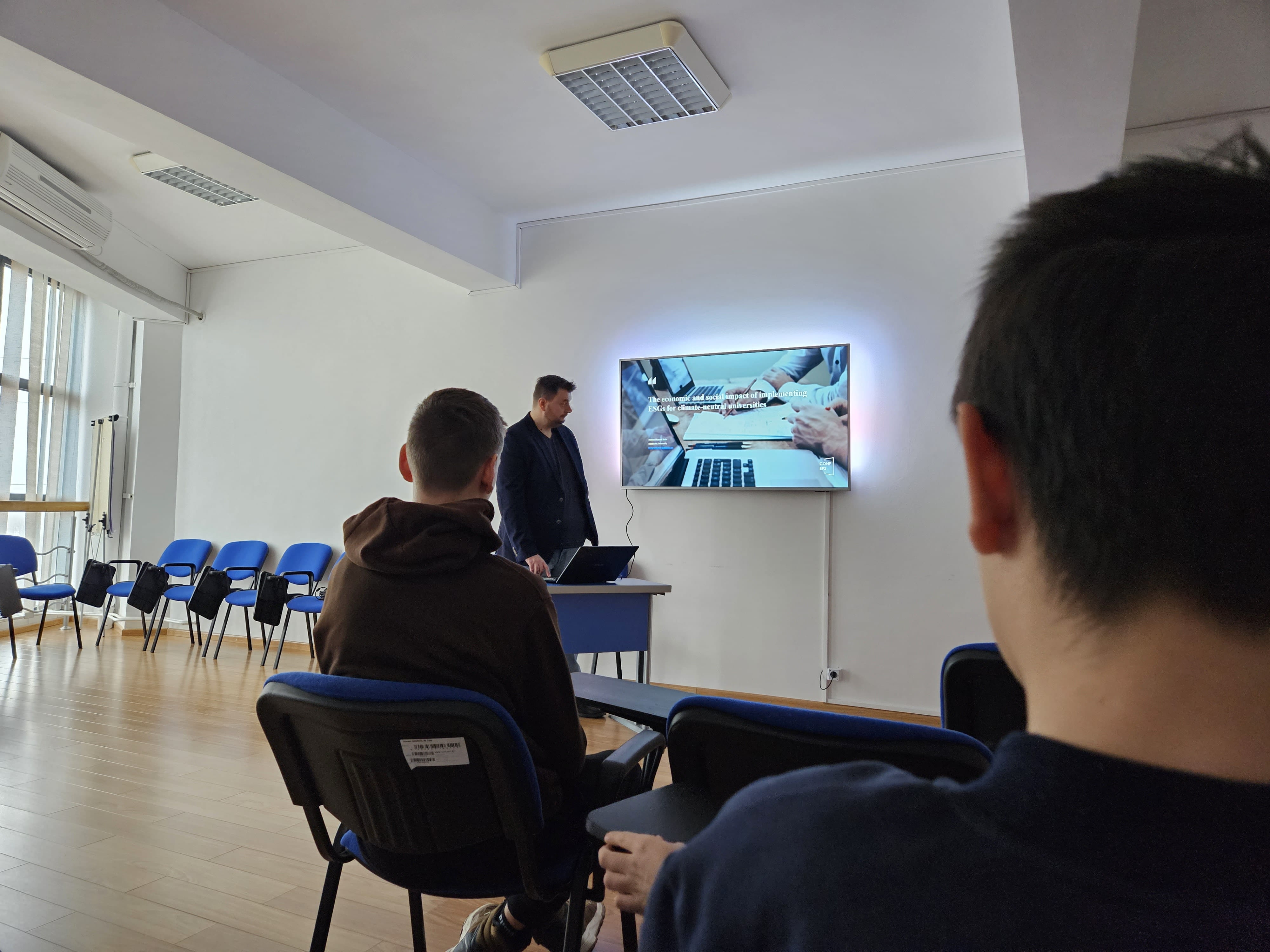
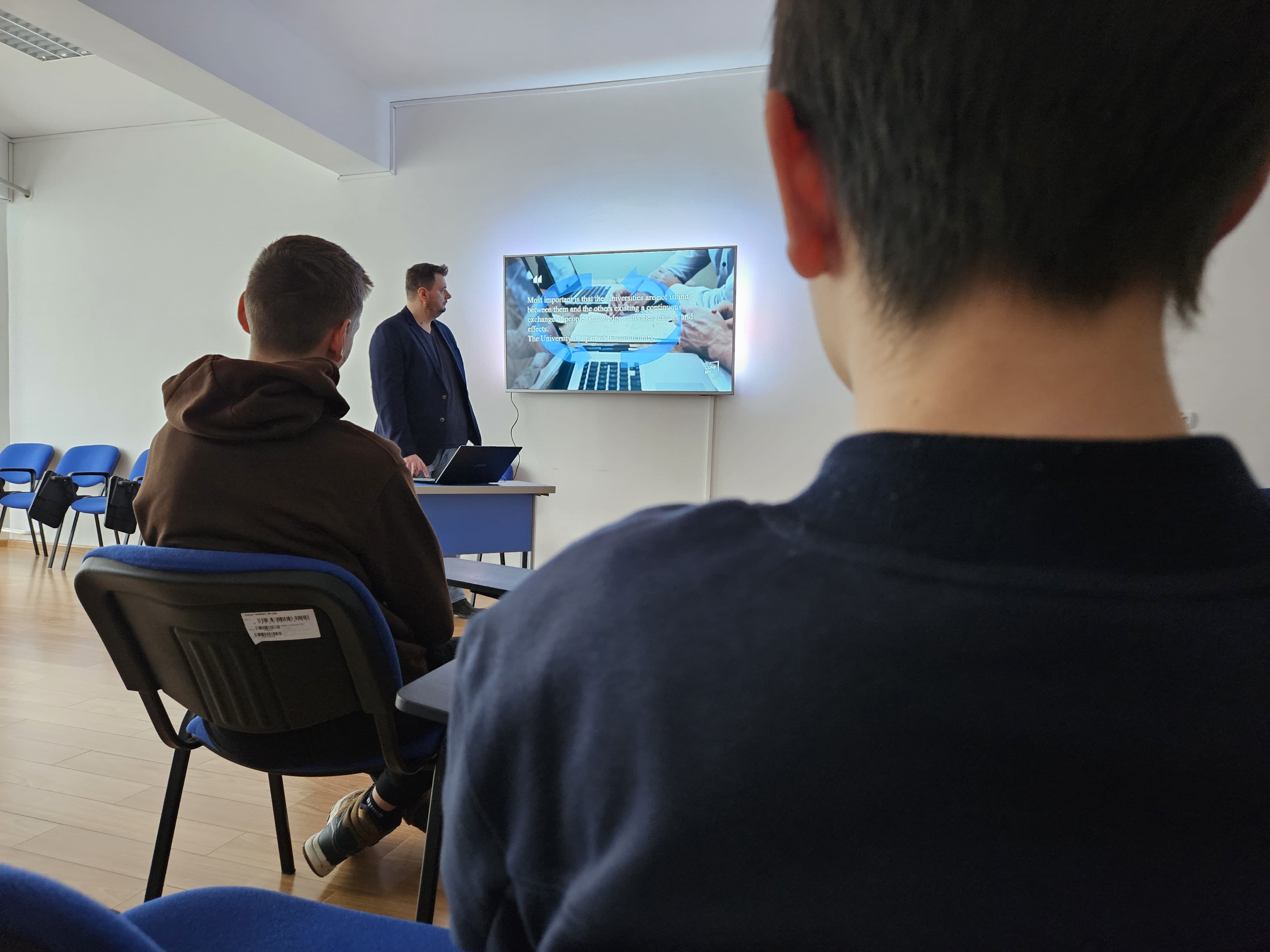
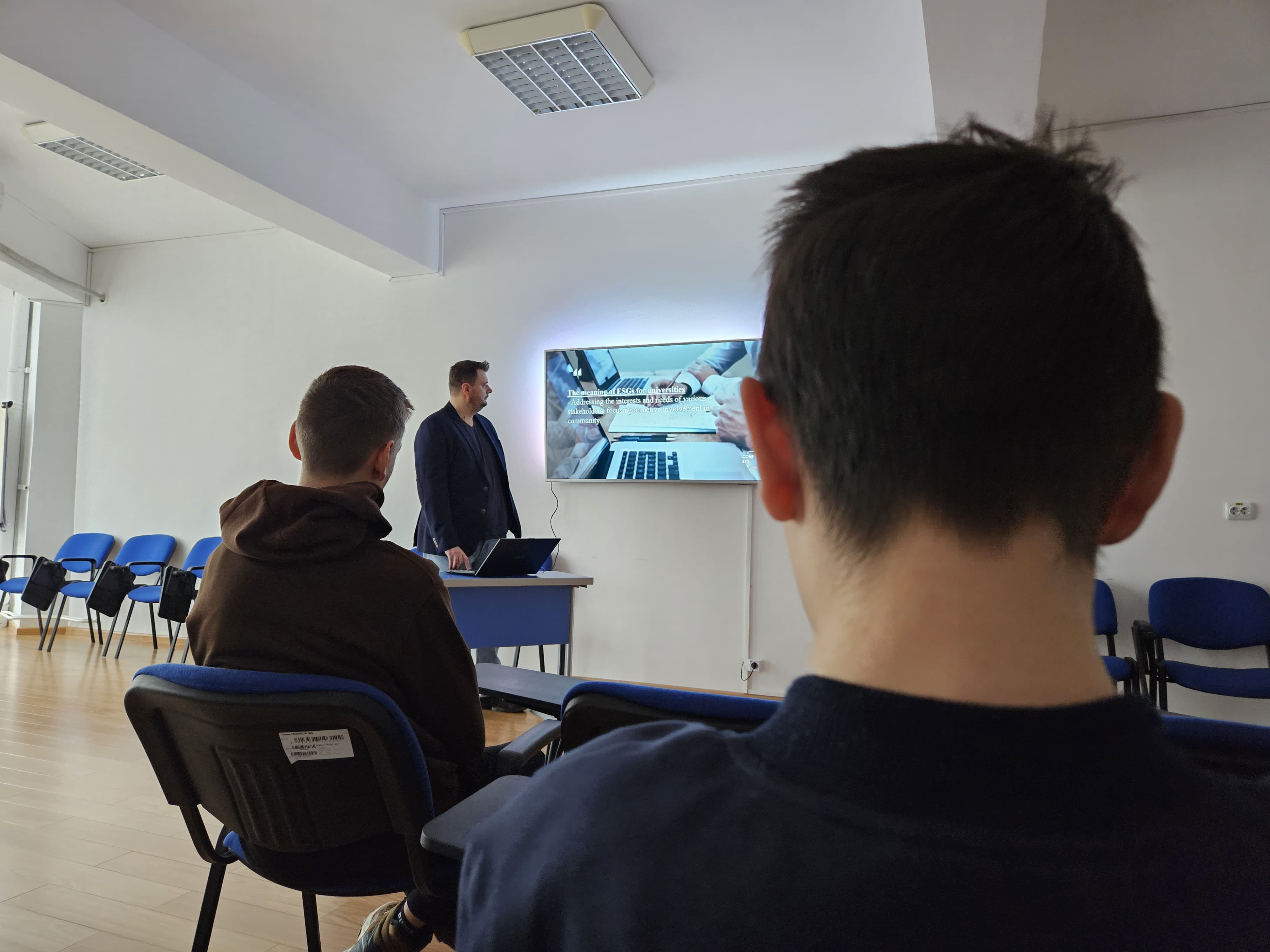
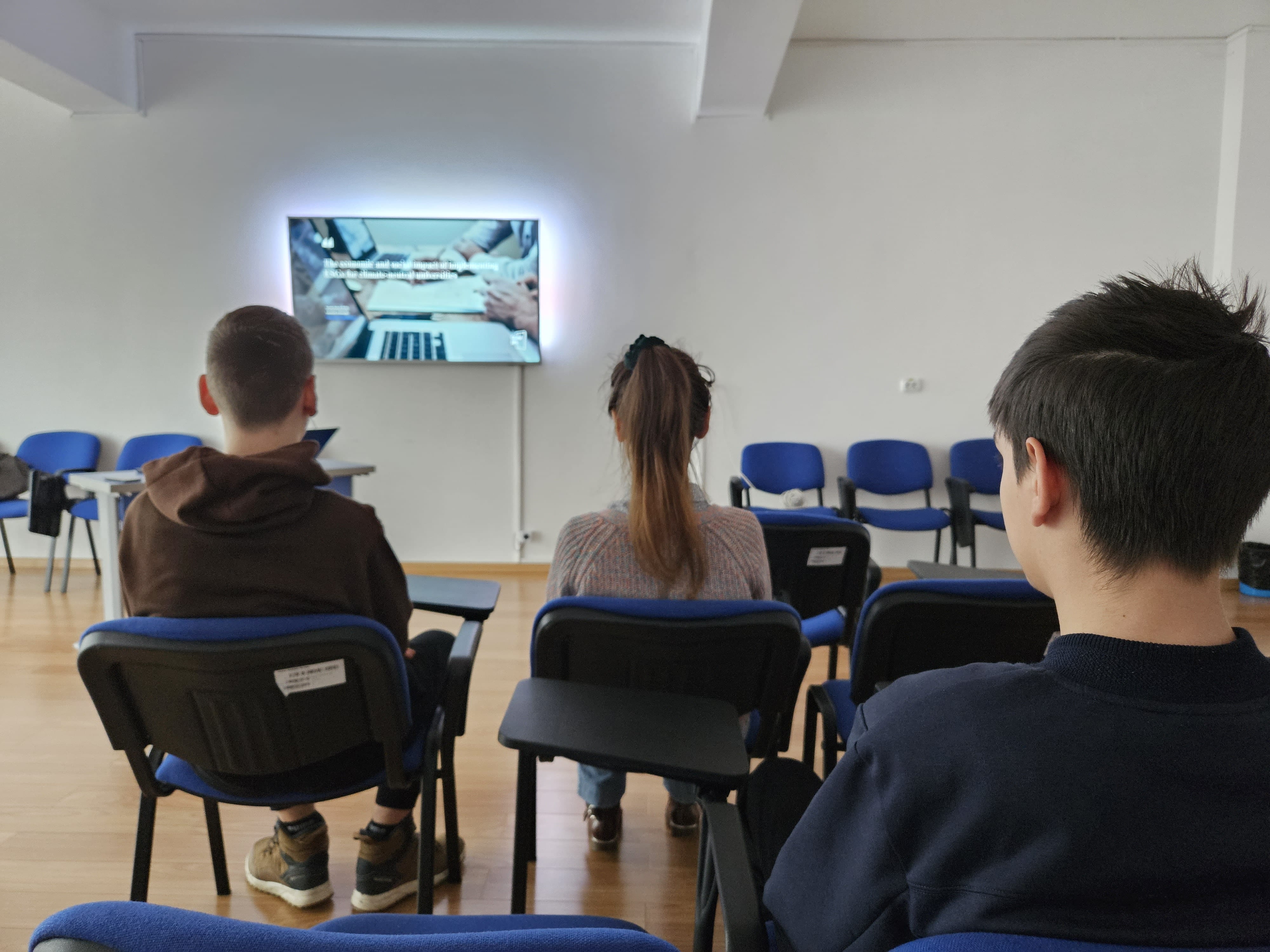
Access to Workshop:
CONF-BPS 2024 Workshop -- Galati - YouTube
Venue:
Faculty of Economics and Business Administration, Danubius University from Galati, Bulevardul Galati 3, Galati 800654, Romania
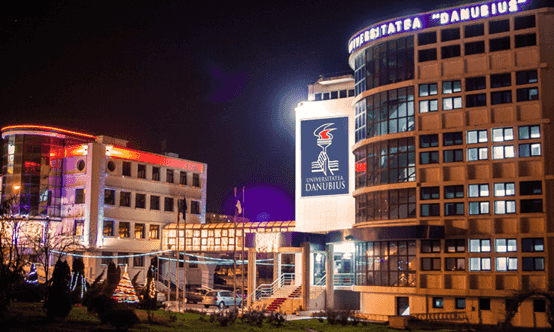
VISA:
Acasa (mae.ro)
Officials who hold diplomatic, service and official passports, as well as their family members, who travel to Romania for official purposes, can directly contact the chosen diplomatic mission/consular post of Romania. The contact details of the diplomatic missions and consular posts of Romania can be consulted here.
It is highly recommended that visa applications be lodged at least 2 weeks before the estimated date of departure and not more than 3 months before that date. The date from which the period of taking a decision upon a visa application is the date when the visa applicant presents oneself at the diplomatic mission/consular post of Romania.
Before you begin
In order to be able to apply online you must:
- Have a valid e-mail address
- Use a computer which fulfills certain technical requirements. For further information see About the E-VIZA portal.
- Have the possibility of uploading the required supporting documents.
If you wish to print or save a copy of your application you must have access to Acrobat Reader or other similar .pdf readers.
Attachments
It is advisable that your supporting documents be translated into Romanian or English by an authorized translator. All documents you submit must be legible. All attached documents must be presented in original and copy when you visit the Romanian diplomatic mission / consular post.
- Each document must not exceed 2 Megabytes (2 MB).
- Only Latin characters are allowed in the filename.
- We accept files in the following formats: jpeg, jpg, tif, png, bmp, txt, rtf or pdf.
How it works
The visa application consists of a number of fields which you have to fill in. Note that you cannot use the "back" and "forward" buttons from your browser (e.g., Internet Explorer). Use only the buttons in the electronic form to move forward and backward between pages.
Visa applications can be lodged only individually. In case more people travel together, each person must apply for an individual visa. In addition, please note that individual visa applications must be lodged for people included in the same travel document (e.g.: underage children included in the parents' travel documents).
If you started registering an electronic application file it is possible to interrupt the application process and save it. You can resume the registration and continue filling in the application at a later stage. An application saved temporarily is stored for 30 days.
When your visa application is decided upon, you will receive a notification by e-mail to the address you supplied when you started your application.